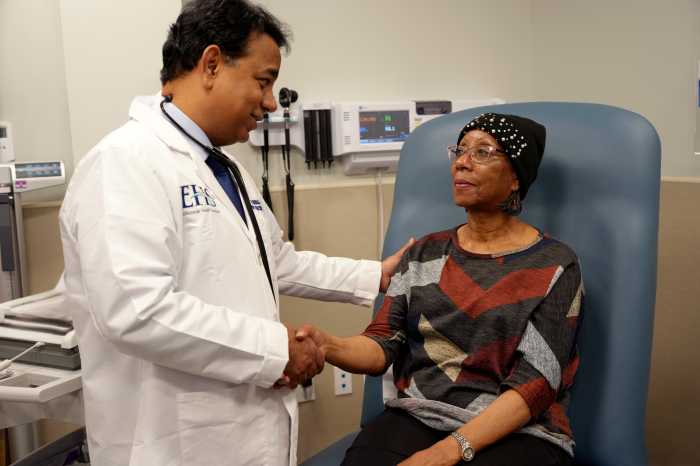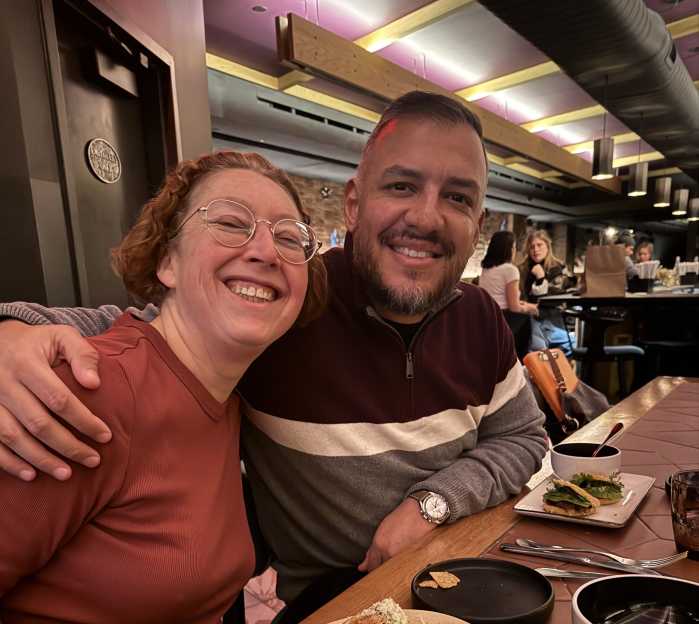For Nathan Klein, who received experimental gene therapy for Parkinson’s in 2003, having a positive attitude and keeping faith have been important factors in dealing with the disease.
Klein, a 62-year-old resident of Port Washington, first experienced tremors in his right hand in 1985. Eventually his right leg and left side would also shake.
“I was just a mess,” he recalled.
Having read materials about Parkinson’s and known others afflicted with it, Klein had a good idea what his diagnosis would be. A neurologist confirmed his suspicions.
Klein started going to clinics where drugs were being tested for Parkinson’s, but he said it “didn’t get me anywhere.” When Klein heard about a doctor doing experiments involving gene therapy to help Parkinson’s, he was willing to give it a try.
“I was fighting this any way I could,” he said. “I was primed for this experiment.”
On August 18, 2003, Klein became the first person to receive this gene therapy.
Klein explained that a manufactured dormant virus injected with the genes is infused into the brain. Once there, he said the virus opens up and the genes “begin to repair the part of the brain that’s not working.”
Although not a cure for the disease, after three months Klein said his tremors were gone. He said his quality of life almost 100 percent back to normal following this procedure.
“When you have Parkinson’s…you’ve got something you can’t control,” he said. “As much as you fight to survive, you always feel like the winner is going to be the Parkinson’s, not you. I just went for any tests, any studies.”
When the gene therapy started to wear out about a year and a half ago, Klein also had a deep brain stimulation that works as a pacemaker with wires in the head. He said it “will almost eliminate any symptoms.”
And, while at one point Klein was taking up to 30 pills a day, he is now down to six.
“My outlook for the future is I’ve put a stop to the Parkinson’s. I’ve won the war so far,” Klein said. “Everything that I did I’m very happy with the results.”
Klein is now working on a book about the importance of maintaining a positive attitude and having faith and hope in these kinds of situations. While illustrating how these factors “played a big part in achieving an acceptable lifestyle” and inspiring him, Klein hopes the book will also help readers do the same.
“It’s very important to get up in the morning, look in the mirror, smile and try to stay smiling all day,” he said. Klein also said, “You can’t have a negative attitude. You have to overcome a lot of challenges.”
To comment on this article go to qns.com

































